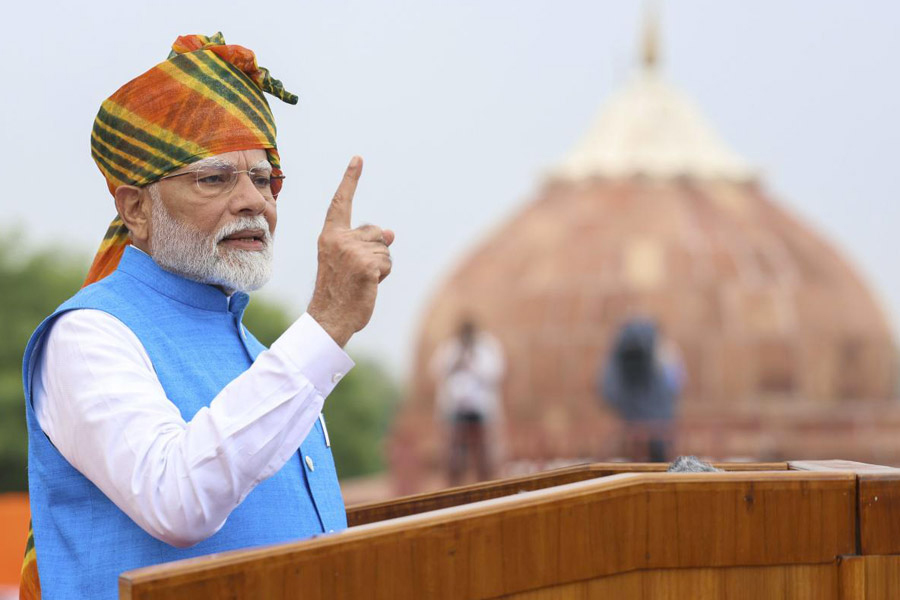The PM emphasized the need for extensive discussions and encouraged everyone to share their opinions
 KRC TIMES National Bureau
KRC TIMES National Bureau

NEW DELHI : In his Independence Day address from the ramparts of the Red Fort, Prime Minister Narendra Modi called for the implementation of a ‘secular civil code’ in India. This was Modi’s first address of his third term and his 11th consecutive Independence Day speech. The PM also strongly advocated for the concept of ‘one nation, one election’.
The Prime Minister stated that it is essential to implement a ‘secular civil code’ and eliminate the ‘discriminatory communal civil code.’
PM noted that the Supreme Court has frequently discussed and issued directives on the uniform civil code. He mentioned that many people believe the current civil code is discriminatory and communal.
He pointed out that both the Constitution and the Supreme Court support the implementation of a uniform civil code, reflecting the intentions of the Constitution’s framers. Therefore, he stressed the importance of fulfilling this objective.
The Prime Minister emphasized the need for extensive discussions and encouraged everyone to share their opinions. He stated that laws dividing the country along religious lines should be eliminated, as they are not suitable for a modern society. He asserted that the time calls for a ‘secular civil code’ to address religious discrimination.
“I would say, it is the need of the hour that India has a secular civil code. We have lived 75 years with a communal civil code. Now, we have to move towards a secular civil code. Only then would religion-based discrimination end,” he said.
Modi also called on all citizens to unite in support of the initiative for ‘one nation, one election.’ He emphasized the importance of this resolution for streamlining the electoral process and ensuring greater efficiency in governance.
The PM claimed that frequent elections create obstacles in the country’s progress and every scheme is seen as a consequence of one poll or another happening every few months, he said.
Modi urged everyone to come together to achieve the goal of ‘one nation, one election’, he said that having simultaneous elections across the country enhances political stability and administrative effectiveness.
Both a nationwide UCC and ‘one nation one election’ have been part of successive BJP’s manifestos. While some BJP-ruled states are working to roll out a uniform civil code, the Centre has so far not taken any legislative measure for its implementation nationally.

The Law Commission had started consultation for it last year. Modi asserted that India’s 140 crore citizens can achieve the goal of a prosperous and developed country if they walk shoulder to shoulder with a united resolve.
He said his government has worked to break the mindset of living with status quo by rolling out big reforms aimed at changing the lives of of the middle class and the poor.
The commitment to reforms is the blueprint for growth and is not borne of any political compulsion but the dedication to nation first, the PM said.
Modi cautioned citizens against those who cannot digest the country’s rise, saying some people cannot think of India’s welfare. The country will have to avoid these people who are sunk in the depth of despair, he said.
He said it is the “golden era” for India, especially in global context, and exhorted people to not let go of this opportunity.


